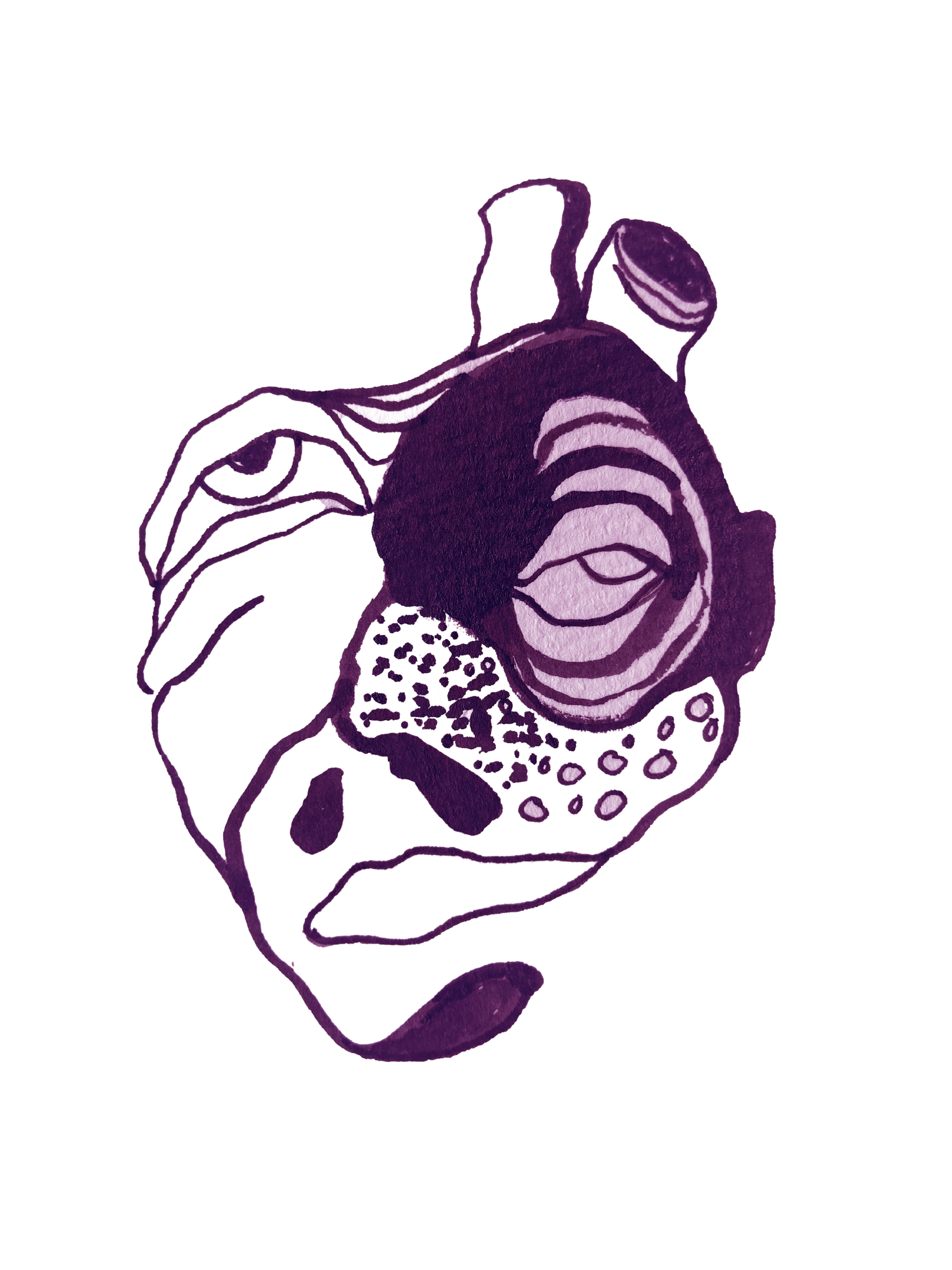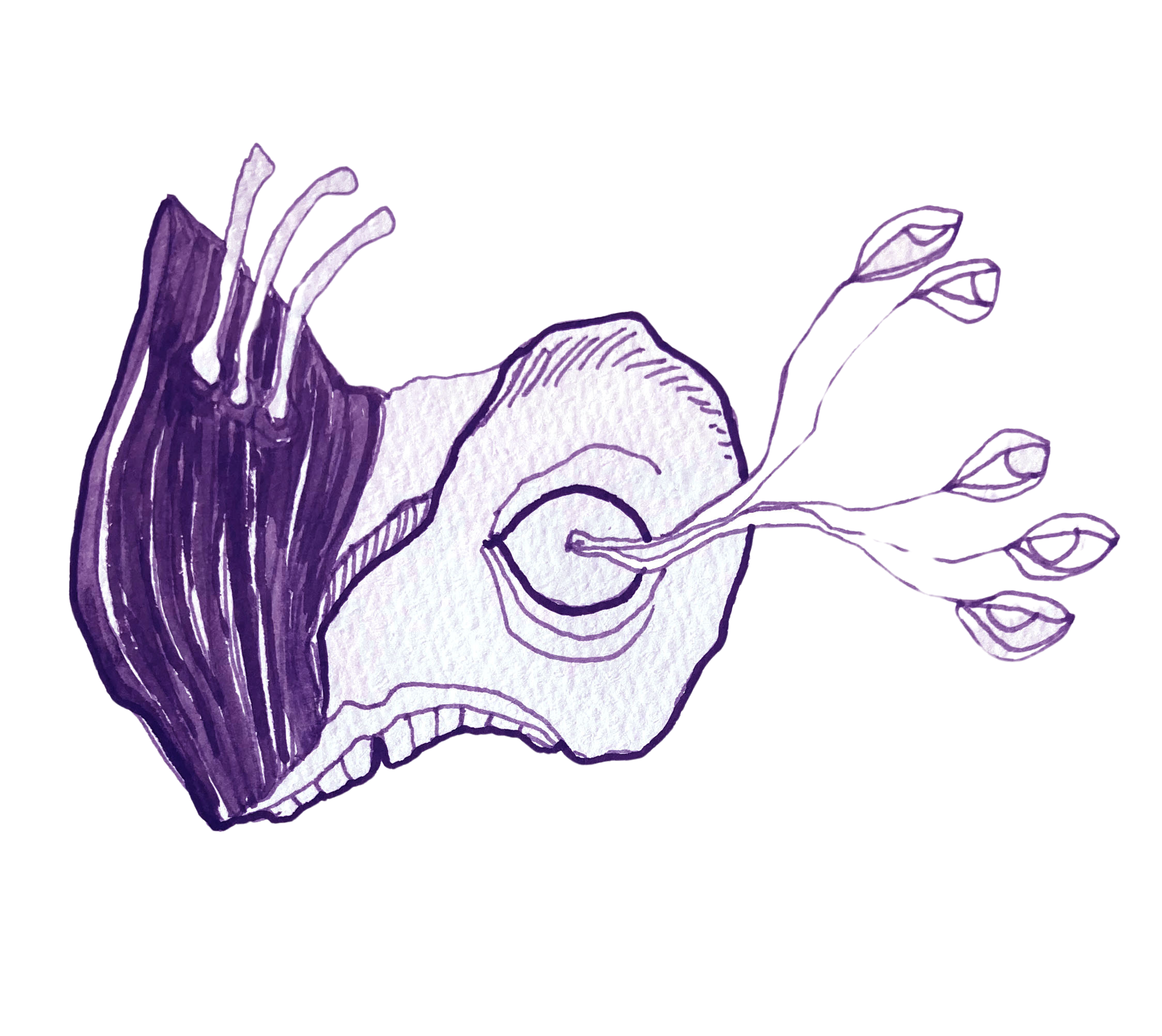becoming
MONSTER
Community Guidelines
Becoming Monster Festival is an experimental space. The outcomes of this convergence are unknown. In creating this container, we are consciously opening to the untamed, the provocative, the unexpected, and the rogue in the conversations and interactions that will unfold.
As this community holds many differences in cosmologies, worldviews, political opinions, cultural backgrounds, and so on, tension may arise. That tension can lead to new insights, possibilities, and connections; it can also lead to conflict, fragmentation, and even trauma. We ask that you try to hold these tensions as potential places of growth.
We offer the following guidelines in hopes of supporting a positive experience.

Share generously.
This space is calling for you to share your stories, dreams, questions, failures, ideas, and challenges. Speak what needs to be spoken. Speak with an awareness of the impact of your contributions on the group. Please share openly and honestly while trying to stay connected with heart, mind, body, and spirit.

Stay with the trouble. Try to be constructive.
Sit with the possibility that we don’t know what’s needed and we don’t have the answers. Can we soften the urge to fix, solve, or transform our reality? Try to observe, listen and honour what is shared without trying to explain, advise, or offer solutions.
If you strongly disagree with a position, can you inquire what’s at stake for you if the other person maintains their opinion? How would it be for you if this difference could not be resolved? Does responding serve your well-being and the well-being of the whole? Does letting go feel like an option and why or why not?
If you do choose to respond, how can you do so in a way that best serves you and the whole? Are there ways of responding that invite everyone to think bigger, reframe the situation, or bring attention to something that might have been missing?
Also, keep in mind that conflict is not abuse. If conflict arises and/or someone expresses something you don’t like, consider if there are constructive ways of engaging.
Be aware that various cultures have different ways of communicating and engaging in conflict. Some may be more passive, quiet, or avoidant while others may be more direct, expressive, or assertive.

Take responsibility for yourself, your well-being, and your boundaries.
We, the community moderators and Care Team, have no control over what is said in this space (although we reserve the right to remove any content that is hateful). We do not want anyone to be traumatized from this experience and yet, we have limited power to prevent negative interactions in this online space. We ask that you please take exquisite care of yourself and to exercise caution and discernment if you feel unsafe or hurt. You’re welcome to bring up a concern with a Care Team member and/or ask for emotional support if you feel triggered, email us with the subject line: “Care Team Request”. It’s also fine to step back, redirect your attention, or even to decide that this gathering is not suitable for you.

Meet cultural & identity differences without making them the enemy or idol.
We don’t want to use our limited time during this gathering to debate if oppression and systematic inequity exist in the world. We, as the organizers, are creating this space fully mindful of these realities, complex as they are. At the same time, we may have different language for, understandings of, and experiences with oppression and inequity, especially as they manifest differently in different parts of the world and based on our social positions.
The fact that differences between groups of humans have been used to oppress and annihilate people does not mean ignoring our differences will make these violences go away. Doing so can further create an experience of marginalization or invisibilization. Let us make room to notice our differences, the ones we were born with and the ones that human society has constructed. Aim to be reflective of and sensitive to the differences in our social contexts, our legacies, our lands, and our material conditions. As we come from many different parts of the globe, be open and curious about each other’s worlds and the social, spiritual, political, environmental, economic, and historical forces that shape it.
Also keep in mind that romanticising or idolizing marginalized cultures, including treating Indigenous and/or First Nations peoples as the bearers of salvation, is another form of othering and dehumanization.

We don’t know what we don’t know.
However much we might think we’ve broken free of dominant culture or colonized mindsets or oppressive ideologies, we remain entangled in conscious and unconscious ways. Let us be kind with each other around our places of pain and ignorance. And let us stay open and gentle with ourselves when others shine a light on things that were previously outside our awareness.
Aim for kindness, settle for curiosity or even avoidance.
We do not need to come out of this experience as friends. Still, try to be kind and compassionate to one another. If that feels too difficult, try to stay respectful and curious. If that feels too difficult, then maintain a safe distance and carry on.

Honor the stories and the learnings.
Consider the personal stories that anyone has shared here to be anonymous to those outside this space, unless explicitly waived. Consider the personal stories shared within a workshop space to be held anonymously/confidentially within that session, unless discussed otherwise.
As we hope for this community to collectively generate new learnings and questions, please honor the relational aspect of learning. Do not take ownership of other people’s ideas; acknowledge them as best you can. If someone’s contribution has sparked a learning or insight in you, consider reaching out to them to thank them.
Because this is not a container in which we’re able to enforce this guideline, we still ask each participant to decide what levels of personal sharing and risk feel comfortable for them.

If it feels safe enough, leap!
This space is more likely to feel rich, generative, and full of creativity if we individually and collectively take some risks. Assess what you may be risking; if you can accept the potential hurt, then go for it!

A few last words.
In case it needs to be said, any language that is hateful or profane directed towards a person or a group of people will be removed from the forum and we will ask someone on the Care Team to have a conversation with the person who used the language. Trolling (internet bullying) and spamming (persistently promoting content, especially content that is irrelevant)) are also not welcome. If someone demonstrates behavior that is destructive to the community and does not show willingness or ability to change after a conversation, they may be removed.
If a community member chats with you privately in a way that makes you feel uncomfortable, you may block them and you can also notify someone on the Care Team.
To contact the Care Team, email us with the subject line: “Care Team Request” and we will forward your message to the Care Team leads. Sit with the possibility that we don’t know what’s needed and we don’t have the answers. Can we soften the urge to fix, solve, or transform our reality? Try to observe, listen and honour what is shared without trying to explain, advise, or offer solutions.

GUIDELINES FOR ONLINE SESSIONS
Step up/step back. Be mindful of how much of the group’s time you’re taking so that others can also participate fully. If you tend to be shy or quiet, see if it serves you to participate more, even if it may be uncomfortable.
Respect the contributors and please let them finish their session. Please, out of respect for the organizers and the Becoming Monster community, allow the live sessions to finish even if you deeply disagree with their teachings, their political opinions, or their methodology. There is space to debrief afterwards, and you can offer your feedback when the Becoming Monster Festival is over. You may also leave the session early.